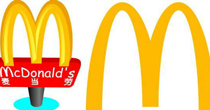 |
姓名: | 林岳 |
 |
领域: | 人力资源 市场营销 运营管理 企业文化 品牌管理 |
 |
地点: | 广东 广州 |
 |
签名: |
- 博客等级:

- 博客积分:453
- 博客访问:1890606
|
Fast-food giants eye Chinese dining
Source:Shanghai Daily Last Updated(Beijing Time):2011-05-13 09:31
Yum! Brands Inc's proposed bid for China's Little Sheep Group Co, the operator of a hot-pot chain in China, is the latest sign that foreign companies are stepping up their forays into China's fast-food restaurant sector.
Overseas fast-food chains have expanded operations in China at a rapid pace in recent years, reaching a point where it's become harder to make inroads. Buying into Chinese food chains is giving them a new growth channel amid furious market competition and domestic rivals who are expanding.
Yum, which runs KFC and Pizza Hut restaurants, said at the end of April that it wants to buy the remaining stake it doesn't already own in Little Sheep. Yum bought a 20 percent stake in Little Sheep in 2009 for HK$493 million (US$63 million) and increased the shareholding to 27.17 percent last year.
Louisville, Kentucky-based Yum said the takeover is under consideration and subject to regulatory approvals. The Canadian daily Globe and Mail reported that the proposed bid has been filed with relevant government agencies in China. No details have been made public.
Zhang Gang, chairman of Hong Kong-listed Little Sheep, holds a 2.41 percent stake, or 24 million shares, and Possible Way International Ltd, a Hong Kong-based company, owns a 29.86 percent stake.
"The deal, if it goes ahead, will enable Yum to expand from fast food to traditional Chinese dining, which is the biggest sector and with the most potential in China," said Joy Huang, a Euromonitor International Shanghai analyst.
Yum has said China, where it operates under its flagship brands KFC and Pizza Hut, is its most important market. It's a highly competitive one, with multinational rivals like McDonald's Corp and Burger King clamoring for more customers.
China accounted for 54 percent of Yum's overall profit of US$264 million in the first quarter of this year. Yum's revenue in China increased 18 percent to 32.5 billion yuan (US$5 billion) last year, but its market share in the fast-food segment slipped to 39.9 percent from 40.3 percent in 2009, according to Euromonitor.
The rapid expansion of international fast-food chains in China is pushing up real estate rental costs and squeezing the earnings of individual outlets. Keeping up service standards and a base of trained workers also has challenged fast-food managers.
"Yum has to seek growth in new areas," Euromonitor's Huang said.
"A stronger presence in Chinese-style food service would help solidify its market position and increase market share."
Baotou, Inner Mongolia-based Little Sheep operates 179 self-owned restaurants and 274 franchised outlets throughout the Chinese mainland, according to its 2010 annual report. Its net income rose 21 percent last year. The company plans to open 40 outlets this year.
Food service chains have been buoyed by rising disposable income in China over the past three years. China's restaurant sector reported revenues of 1.76 trillion yuan last year, up 18 percent year on year, according to the National Statistics Bureau.
Yum, which runs 3,200 KFC and 500 Pizza Hut restaurants in China, earlier said it plans to open 500 new stores every year over the next three years in the country. McDonald's plans to have 2,000 restaurants across the nation by 2013, up from its existing 1,300 outlets.
In 2004, Philippine fast-food giant Jollibee Co entered the Chinese market by acquiring 85 percent of Yonghe King, a Chinese fast-food restaurant that specializes in noodles.
Jollibee completed its takeover of Yonghe King by acquiring the remaining 15 percent stake for US$6 million in 2007. According to its plans, Yonghe King outlets will increase to 700 over the next five years, up from the current 200.
Though foreign fast-food chains are accelerating expansion in China, traditional Chinese dining still dominates the market. According to Euromonitor, revenue at Chinese-style food service chain rose 16 percent to 78 billion yuan last year.
In order to appeal to local consumers, Yum fused its KFC model with Chinese dining patterns in a chain of fast-food outlets called East Dawning, launched in 2004. It now operates 20 of the restaurants in China.
Lin Yue, chief analyst at Lingyan Consulting Co, said merely adding Chinese-style food, like fried shrimp, to menus isn't enough if Yum wants to carve a bigger market presence.
"Both Yum and Little Sheep compete for prime locations and business opportunities in second-tier cities," Lin said. "Compared with foreign companies, domestic food chains are better at offering distinctive menus that appeal to consumers, and they obviously know the market better."
The Chinese fast-food industry is mushrooming.
Guangzhou-based fast-food operator Kungfu Catering Management, which runs the Zhen Gongfu Chinese-style fast-food chain, plans to expand its restaurant number to between 800 and 1,000 in China over the next three years.
Kungfu Catering, which features a portrait of Chinese kungfu star Bruce Lee as its logo and specializes in steamed Chinese food, currently owns 400 restaurants nationwide.
Company President Cai Dabiao earlier told reporters that the company will accelerate expansion in second-tier cities and will aim to open more restaurants in residential areas, veering from its initial strategy of seeking locations in commercial centers and near transport hubs.
Country Style Cooking Restaurant Chain Co, which is based in southwest China's Chongqing Municipality and specializes in spicy Chinese food, received US$20 million of venture capital in 2007.
In September, it became the first Chinese-style food chain to sell shares on the New York Stock Exchange, raising as much as US$92 million to fund expansion.
The company, which runs 141 restaurants nationwide - mainly in southwest and central China - aims to have 420 outlets by 2013 and said it plans to become the No. 1 market player in Chinese-style fast food.
Other major competitors in that realm are Ajisen Ramen and Daniang Dumpling.
Pei Liang, secretary-general of the China Chain Store and Franchise Association, estimated that Yum's latest takeover proposal for Little Sheep will face few political hurdles, unlike Coca Cola's failed bid for China's Huiyuan Juice Group in 2009, which foundered on monopoly concerns.
"China's catering industry is highly fragmented," Pei said. "Foreign companies still account for a small part."
Taking over Little Sheep may be a means to an end, but the challenges don't end there.
Little Sheep was the largest hot-pot chain, with a market share of the Chinese food service segment estimated at 5 percent, Euromonitor said. Though its revenue continues to climb, Little Sheep's growth has lagged behind the industry average.
Some analysts blame a poor business model for the lag. Others cite the common difficulties for Chinese-style fast-food chains, such as quality standards and trained staff.
"Consumers are usually not very loyal to a particular brand and are willing to try new eating places," Euromonitor's Huang said.
"Little Sheep's rising business mainly has come from store expansion," she said.
"But it's getting harder to keep up fast development in saturated first and second-tier cities. Its business model has focused on direct investment in new store openings, and that requires a lot of start-up capital."
 知识不是力量,只有知识被运用并产生价值才是力量。 |
 黄太吉再怎么忽悠也成不了麦当劳!
黄太吉再怎么忽悠也成不了麦当劳! 微软如今面临的最大问题是什么?
微软如今面临的最大问题是什么?
一共有 0 条评论
发表评论
以上网友发言只代表其个人观点,不代表总裁网的观点或立场。